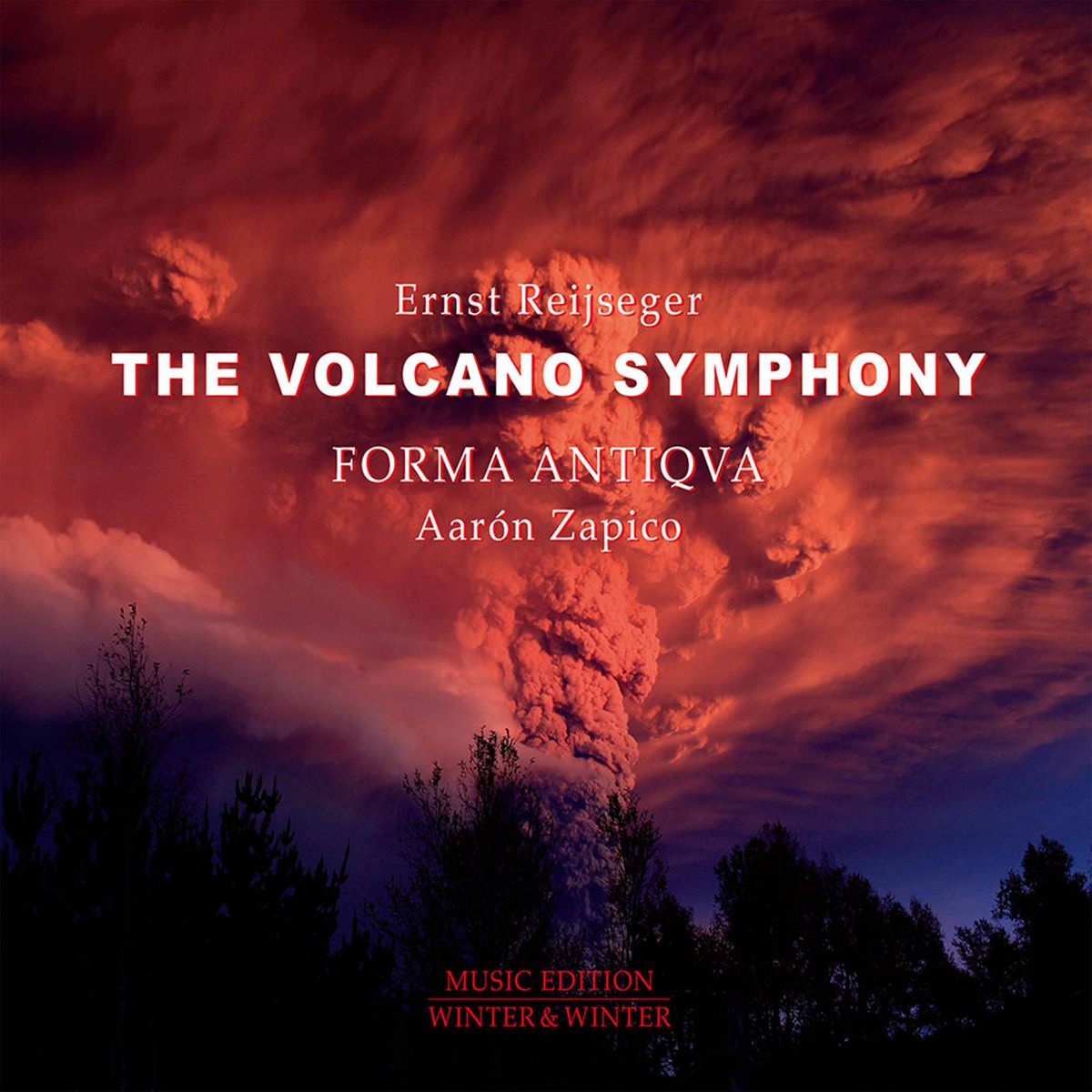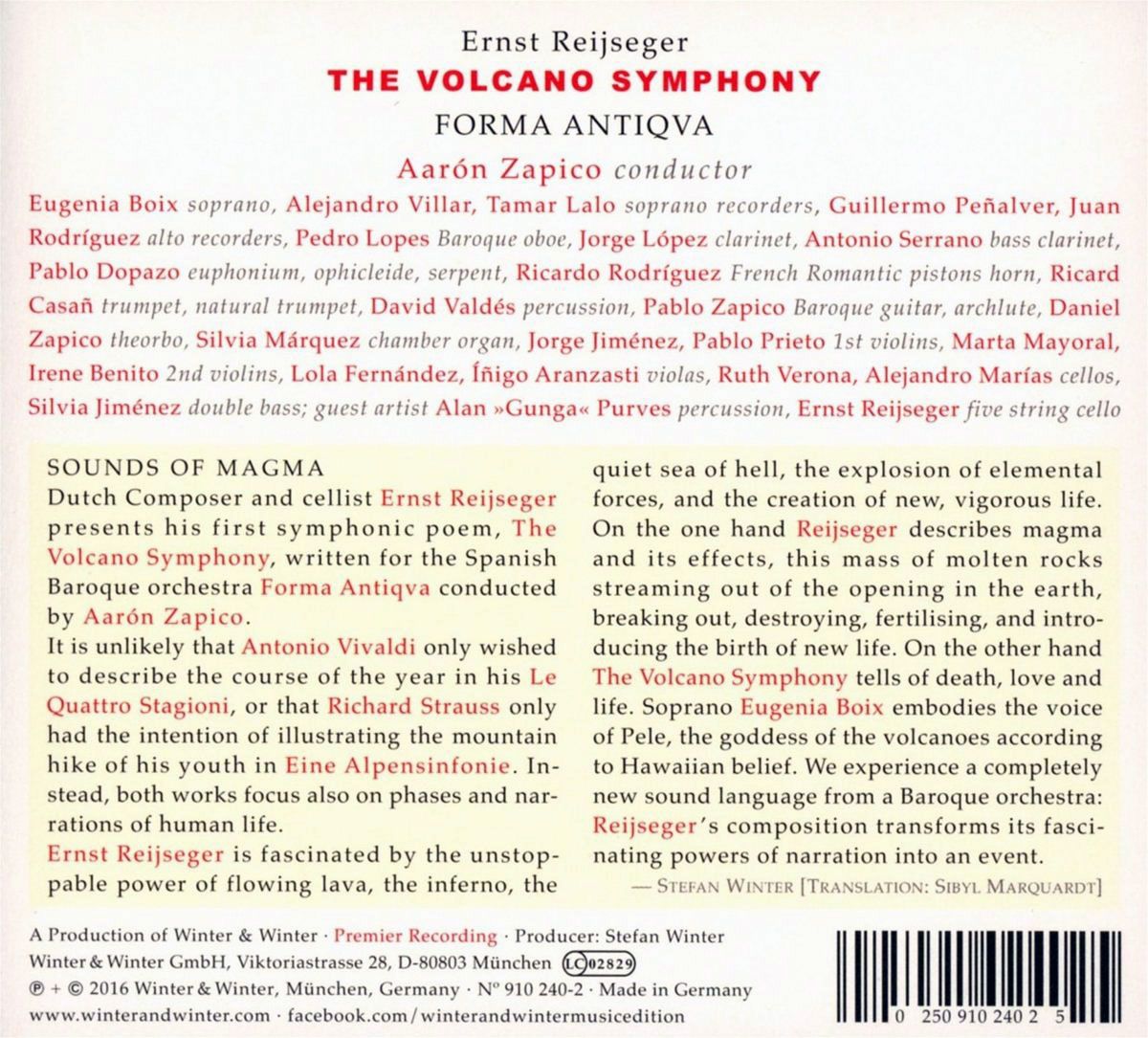THE VOLCANO SYMPHONY
ERNST REIJSEGER
FORMA ANTIQVA, AARÓN ZAPICO, EUGENIA BOIX | SILVIA MÁRQUEZ, órgano
WINTER & WINTER 2016 | 910 240-2
El compositor y violonchelista Ernst Reijseger presenta su primer poema sinfónico, The Volcano Symphony, escrito para la orquesta barroca española Forma Antiqva, dirigida por Aarón Zapico.
Fascinado por el poder imparable de la lava que fluye, el infierno, la explosión de fuerzas elementales y la creación de una vida nueva y vigorosa, Reijseger describe el magma y sus efectos, esta masa de rocas fundidas que salen de las entrañas de la tierra, estallan, destruyen, fertilizan e introducen el nacimiento de una nueva vida.
La soprano Eugenia Boix encarna la voz de Pelé, la diosa de los volcanes según la creencia hawaiana.
NOTAS AL CD
SOUNDS OF MAGMA
Dutch Composer and cellist Ernst Reijseger presents his first symphonic poem, The Volcano Symphony, written for the Spanish Baroque orchestra Forma Antiqva conducted by Aarón Zapico.
It is unlike that Antonio Vivaldi only wished to describe the course of the year in his Le Quattro Stagioni, or that Richard Strauss only had the intention of illustration the mountain hike of his youth in Eine Alpensinfonie. Instead, both works focus also on phases and narrations on human life.
Ernst Reijseger is fascinated by the unstoppable power of flowing lava, the inferno, the quiet sea of hell, the explosion of elemental forces, and the creation of new, vigorous life.
On the one hand Reijseger describes magma and its effects, this mass of molten rocks streaming out of the opening in the earth, breaking out, destroying, fertilising, and introducing the birth of new life. On the other hand The Volcano Symphony tells of death, love and life. Soprano Eugenia Boix embodies the voice of Pele, the goddess of the volcanoes according to Hawaiian belief. We experience a completely new sound language from a Baroque orchestra: Reijseger’s composition transforms its fascinating powers of narration into an event.
Stefan Winter


